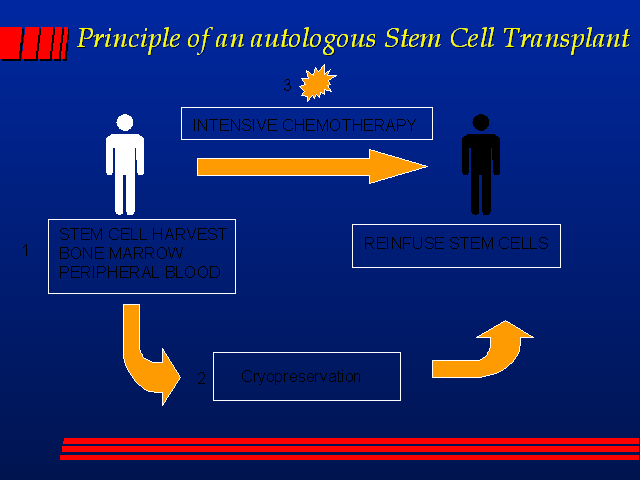Safe Autologous Stem Cell Transplant for Diabetes
According to a recent WHO report, diabetes is one of the top ten leading causes of death worldwide; in 2012 the global prevalence of diabetes was estimated to be more than 10% among adults. The most prevalent type of diabetes is the type 2 and it is rampant in adult population. It is reported that diabetes is the leading cause of renal failure and blindness in developed countries, a person suffering from diabetes also has high chances of having a limb amputated. The risk of limb amputation is 10 times higher in diabetic patients. It is also known that most diabetic patients develop hypertension and cardiovascular diseases, which account for high rates of morbidity and mortality among adult patients. Most patients receive treatment through oral medication but this is also dangerous since after sometime they become insulin dependent. Oral insulin medication is also not so effective since exogenous insulin cannot provide the tight glycemic control exerted by the pancreas-derived insulin secretion. Due to these myriad problems stem cell therapy can be very useful in replacing the affected cells and restore normal cell function normalizing insulin levels in the long run.
What is autologous stem cell transplant?
The body has stem cells in the bone marrow, in muscle tissues and also in the adipose tissues. These stem cells turn into red blood cells, white blood cells, or platelets to help your body stay healthy. However there are situations when the amount of stem cells in the body is not enough to keep you healthy. This may be caused by some diseases like multiple myeloma or by aging. When this happens there will be need for supplementing the amounts of the stem cells so that they can be able to offer protection to your body. This calls for stem cell transplant which may be done by placing healthy stem cells in your body through an IV to restore the normal functions of the stem cells. at times the stem cells may be harvested from outside the body especially from placentas after successful normal delivery, however when this stem cells are sourced from within the body of the patient then it is referred to as autologous stem cell transplant. Autologous stem cell transplant is safer since the cells are from the body and therefore there is no risk of them getting rejected neither to induce unpleasant allergic reaction.

How stem cells collected
In autologous stem cell transplants, the doctors use peripheral blood stem cell transplantation. With peripheral blood stem cell transplantation, the stem cells are taken from blood. The growth factor G-CSF may be used to stimulate the growth of new stem cells so they spill over into the blood. G-CSF is a protein that is produced naturally in the body. The blood is removed from a vein and passed through a machine that separates the stem cells. The machine then returns the remaining blood through a needle in the person’s arm or through a central venous catheter. This way of collecting stem cells is called apheresis. In adults, most autologous transplants use stem cells from blood. In a child, the decision whether to use cells from the bone marrow or the blood depends on the size of the child.
Mesenchymal stem cells work best for diabetes
In the past cell based therapy as used in treatment of diabetes began by use of islet transplantation have been successful in providing a source for insulin secreting cells. However this method has had its share of failures and disadvantages that created a vacuum that doctors hoped to be filled by a better cell based therapy. Some of the downs of the islet transplantations included; limited donors, graft rejection, the need for continued immune suppression and exhaustion of the donor cell pool. the search for a more reliable and sustainable source of insulin secreting cells made stem cell therapy a target as a promising alternative for islet transplantation in diabetic patients who fail to control hyperglycemia even with insulin injection. Autologous stem cell transplantation may provide the best outcome for those patients, since autologous cells are readily available and do not entail prolonged hospital stays or sustained immunotoxic therapy. Among autologous adult stem cells, mesenchymal stem cells therapy has been applied with varying degrees of success in both animal models and in clinical trials.
Cell-based therapies for diabetes mellitus had achieved lots of success with the application of islet transplantation from cadaveric donors, and the success of the Edmonton protocol back in 1999. Despite the success of islet transplantation in fighting diabetes more so for type 1, there were some drawbacks for example there was need to use immunosuppressive regime so as to favor graft acceptance and prevent rejection. It is with these loopholes that researchers sought to find better treatment with mesenchymal stem cells. Stem cell therapy is a solution to some of the drawbacks of islet transplantation especially the shortage of donors. Autologous stem cell therapy allows for a person’s on organs to be used in the transplant.
In autologous stem cell transplant the most effective mesenchymal stem cells are used to differentiate into insulin producing cells. The mesenchymal stem cells can be harvested in the bone marrows or in the adipose tissues where they are found in plenty. The mesenchymal stem cells have very many advantages when used as they have a high capacity to self-replicate and differentiate to bone and fat-forming cells and other tissue cells. They maintain the capacity of multilineage differentiation potential, both within and across lineage barriers. They are easy to cultivate and expand, and maintain pluripotentiality after prolonged culture conditions. For more information on diabetes, Visit us at AWAREmed Health and Wellness Resource Centre at Myrtle Beach, South Carolina. Dr. Dalal Akoury (MD) an expert in integrative and regenerative medicine will be able to help.














